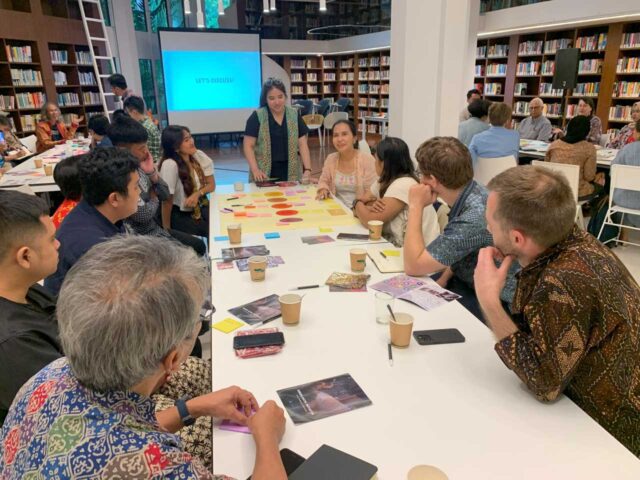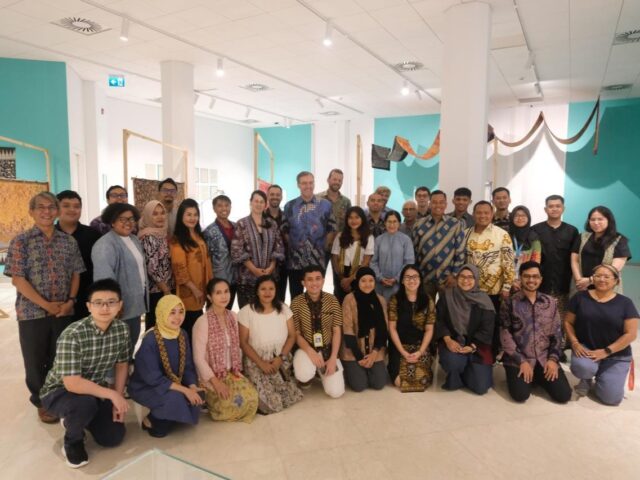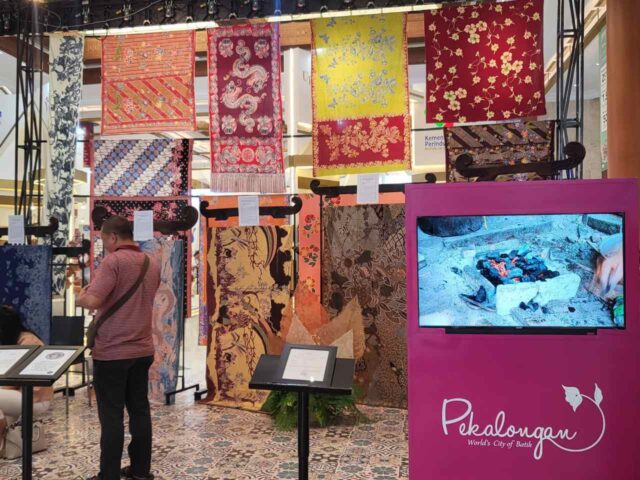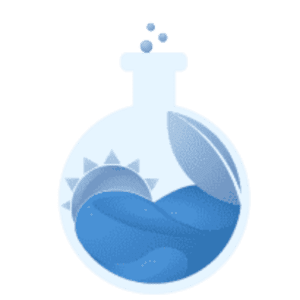Pekalongan is a small city on the north coast of Central Java, well-known for its famous batik textile industry in Indonesia. Most of the batik in Indonesia is crafted in Pekalongan by approximately 1,500 mostly small-scale, family-owned businesses.
To some extent, batik industry in Pekalongan plays a part in significant overexploitation and pollution of water. Since batik textile workshops use large amounts of water, the sector contributes to the depletion of groundwater and, with that, to land subsidence, making the city more vulnerable to coastal flooding.
The Dutch government is strongly committed to supporting the City of Pekalongan to develop more sustainable and healthy management of water resources to benefit all people. The Water Agency is appointed to run matchmaking activities that will help the local batik communities, government agencies, and the sustainability of the batik sector.

The project’s main activities started in May 2022 with determining the local requirements for matchmaking and opportunities for possible solutions, then continued with identifying and selecting the appropriate solutions that are needed and supported by the local stakeholders. Matchmaking of the solution providers and the local stakeholders were held as the final phase in November 2022 with two steps of workshop activities: (1) Green Batik Forum, and (2) Wastewater Treatment Technical Assessment.
Project Result
As The Water Agency established through many discussions with government agencies, batik industries and other relevant parties, it was identified that the interests, ambitions and requirements between the main stakeholders in Pekalongan are quite far apart.
At the core, all water-related problems facing the batik industry in Pekalongan are interconnected with and rooted in a broad variety of factors such as the weak/vulnerable socio-economic position of the (many small) batik producers, lack of policy and regulation enforcement, lack of shared identity and vision on Pekalongan as a ‘batik capital’ (producers are very proud of their batik but they have a weak market position relative to suppliers and buyers), lack of public-private collaboration, lack of sustainable batik production/operating standards, lack of awareness and education on ‘green batik’, lack of ‘green batik’ champions/role models, lack of innovation dynamics (e.g. new technologies for more sustainable dying, water and energy use, etc.) and lack of collaboration between government agencies, both within the Kota as well as between Kota and Kabupaten.
Based on the report analysis, it was identified a number of ‘entry points’ that are worthwhile to develop and support:

The conclusion from this phase is that addressing wastewater on its own has little merit. All previous efforts have failed or had a short-lived impact because they had no inclusive buy-in and were poorly supported to become sustainable (e.g. no training, no maintenance), or did not reflect and connect with the market demand.
To successfully engage stakeholders with wastewater and create an opportunity for new treatment solutions to be introduced and implemented, one have to address it as part of a more integrated approach that recognises the factors as mentioned. Above anything else, the approach should deliver a concrete and tangible up-side for the batik producers (i.e. the potential to earn more income); otherwise, they will not/cannot change their current practices.





